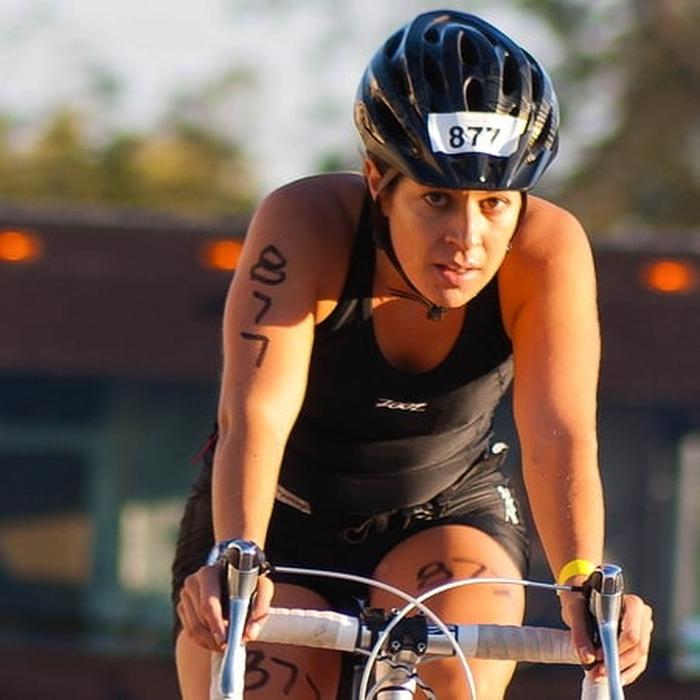
One weekend in 2006, I desperately needed to escape campus and do something fun. I joined a good friend and ended up running my first marathon on a whim—and finished the weekend with shin splints, two lost toenails, and a dehydration headache.
Marathon finishers often report a feeling of accomplishment and elation while crossing the finish line. But as the race volunteer draped a metallic finisher’s blanket over my slumped shoulders, my first words were, “I will never go through this again.”
But, exactly one year later, at the age of 21, I sat treading water in Lake Monona, Wisconsin, awaiting the gunshot that would signal the start of my first Ironman. Paddling among the 2,000 other athletes facing a 2.4-mile swim, a 112-mile, two-loop, hilly cycling course, and a full 26.2-mile marathon through downtown Madison (all in a days’ work!), I thought: “Wow, human memory of pain is short. This may end up being a very poor life decision.”
Then, the gun sounded, and I found myself frantically swimming in a whirlpool of people, as we began the first leg of the race.
140.6 miles, 14 hours, and way too many energy bars later, I was officially an Ironman. I collapsed into a few volunteers, received calcium and magnesium supplements for extreme dehydration, and finally stopped being delirious and emotional, only to replace those feelings with relief. I had finished.
People often ask me: Why would I ever put myself through that pain? The short answer: I got a pretty great student discount. The long answer is more complicated.
Since its inception in 1978, Ironman has been known as one grueling, unpredictable event. Picture the famous Julie Moss at the World Championships in Hawaii in 1982: She finished on her hands and knees, having crawled the last few hundred meters of the race. During Ironman’s intense distance and three challenging events, anything can happen. If the weather changes suddenly, you have to adapt. If your body rejects a certain fluid or food, you have to adapt. If you suddenly experience a problem with your bike, such as a flat tire, you have to adapt. Expecting the unexpected is just another leg of the race.
The first time I learned about Ironman, at the age of 12, I decided that one day, I wanted to complete it—if just to show myself that I could. As children, we’re told we can do anything: We can change the world, save it, improve it. Slowly, as we age, we limit ourselves. We begin to feel that we’re small, that the world is really big, and that our actions hover in some deterministic vacuum, free of our own choices. Ironman is one way regular, everyday, “small” people can see that they can do something incredible.
As I stumbled through the final miles of that marathon, I knew I owed it to my 12-year-old self and to the months I’d spent training to keep going. To this day, I remember the race; not for completing it, but for learning that we each keep a spare battery hidden inside ourselves for those really tough times. We just need to know how to charge it.
It was warm and sunny on that September morning when I raced at Madison. The sun, lighting the sky in a violent rush, rose along Lake Monona and glittered on the colorful swim caps of the athletes below. The water was cold. We laughed in the lake as volunteers on paddleboats delivered us coffee. I remember smiling while I ran into transition, as one volunteer held me on the ground and the other stripped me of my wetsuit, spraying sun block on me and handing me a Gatorade. I remember the crowds that lined up along the trees during the steepest climbs and who stayed, shouting encouragement, until dark, cheering each athlete to his or her finish. I remember the hugs that I received from other athletes, strangers in the morning, but good friends by the evening.
I remember the spirit of camaraderie that permeated the day, because we all knew that we had a reason for racing beyond the fancy wetsuits, bikes, and sneakers. We all wanted to search for the hidden spirit of I can.